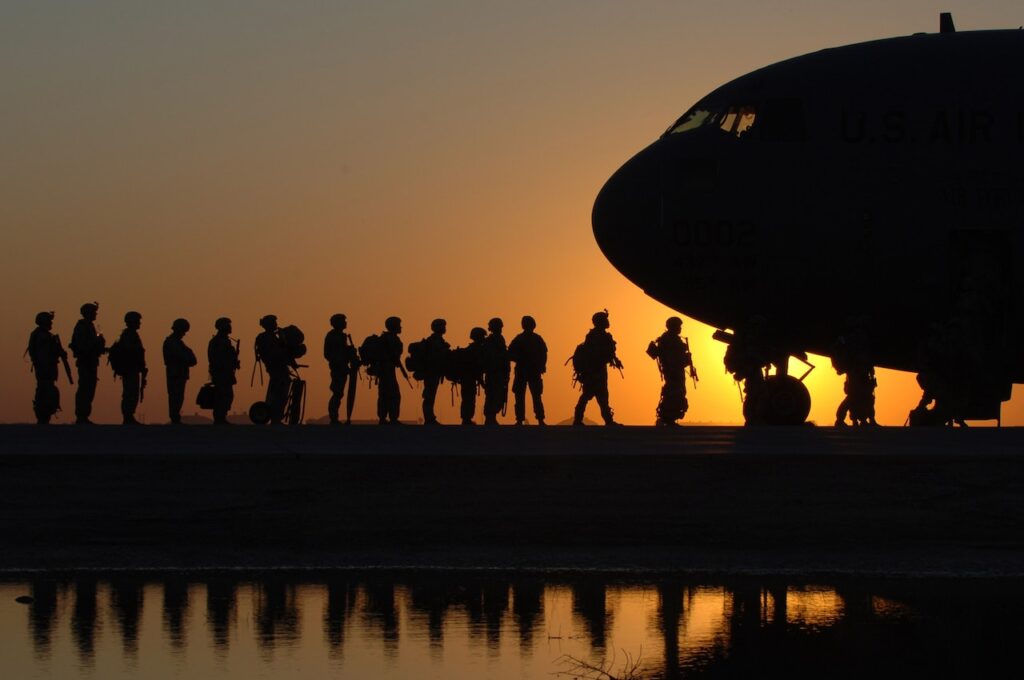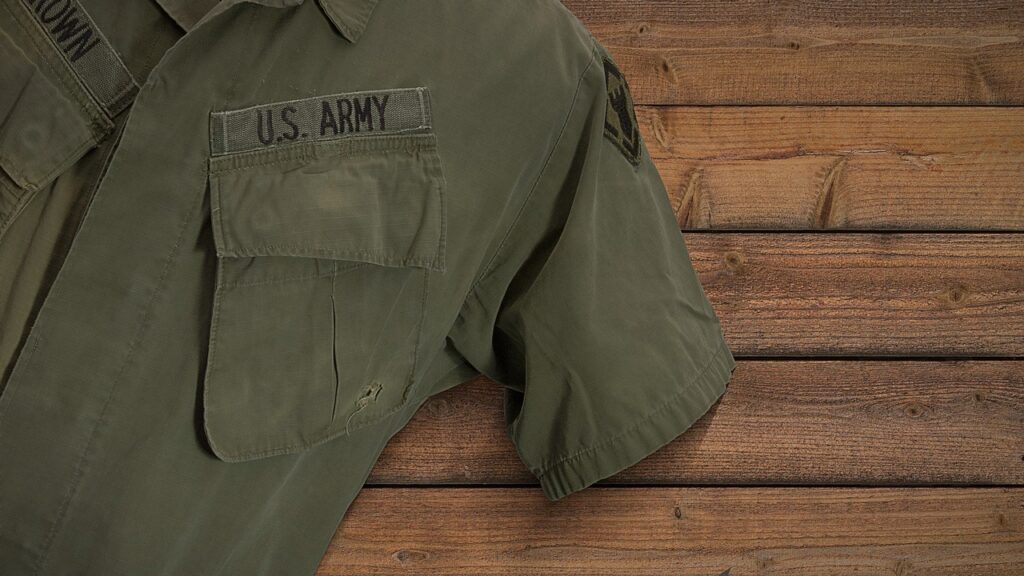Military Protective Order: Everything You Need To Know

A military protective order, or MPO, is a short order that prohibits a service member from communicating or contacting a protected person. Military protective orders are necessary to safeguard victims, quell disturbances, and maintain good order and discipline. These orders are carried out so alleged victims have the time to pursue protection orders through civilian authorities or to support an existing civilian protective order. Violation of an MPO may result in prosecution under the Uniform Code of Military Justice.
Military protective orders are relevant, especially in cases of domestic violence. This order protects military family members from abusive relatives who are part of the military. A commanding officer can issue MPOs only if there is evidence that the accused service member was involved in domestic abuse.
Contents
- 1 What are military protective orders?
- 2 How a Military Protective Order is issued
- 3 Military Protective Order Issuing Requirements
- 4 What Happens After A Military Protective Order Is Issued?
- 5 How Long Does a Military Protective Order Last?
- 6 How Do I Cancel MPOs?
- 7 Violations Of Military Protective Orders
- 8 Conclusion
- 9 FAQs
What are military protective orders?
A military protective order (MPO) is an order issued to military personnel to achieve four goals. These are to protect victims of domestic violence, minimize domestic dactiisputes and disturbances, encourage service members to maintain good order and discipline, and give the victim time to pursue actions and protective measures against the active duty service member in a civilian court.
Who can request a military protective order? A military protective order is intended to protect military family members who have become victims of domestic abuse and violence. However, the alleged victim isn’t the only one who can request a military commander to issue this order. A victim advocate or law enforcement officer can request military protective orders on behalf of a victim of child abuse. A family advocacy program (FAP) clinician may also request an MPO.
Who is authorized to issue a military protective order? No formal hearing is required to determine whether or not a military protective order should be given. Instead, military protective orders are issued by the unit commander of a service member. The commanding officer will receive a request for assistance and determine if issuing a military protective order is appropriate.
For a protective order to be issued, the commanding officer must have good reason to believe that the service member committed an offense that may result in a court martial. Another requirement is that the terms of the MPO are necessary, given the circumstances surrounding the case.
However, in most cases, a commander issues a protective order even if there is little to no evidence to support the abuse allegations. This is primarily because protective orders shield commanders from any repercussions or backlash that may arise due to the domestic dispute.
As mentioned, a military protective order can only be issued to achieve four primary goals:
- protect victims of domestic violence
- minimize domestic disputes and disturbances
- encourage the service member to maintain good order and discipline
- provide the victim some time to pursue action and measures in civilian courts
How a Military Protective Order is issued

According to the Department of Defense, military protective orders can be issued to an active duty member in response to accusations of domestic abuse or sexual assault. A military protective order is issued if the military commander has sufficient reason to believe that the service member has behaved in a manner that may result in a court-martial. The commander must also determine if the primary goals of an MPO are necessary, given the circumstances surrounding the case.
The commanding officer has the freedom to determine if the military protective order is necessary or not. In case of a denial, that officer must document the reasons for the refusal and forward those reasons to the Installation Commander for a final decision.
How exactly is a military protective order issued? Protective orders can be given verbally or in writing. However, most protective orders are issued through writing, specifically on a DD Form 2873. It is relatively easy to obtain this form. All a victim has to do is contact the relevant military office for some assistance.
Military Protective Order Issuing Requirements
According to the law, a commander may issue an MPO only to service members under their command. Each MPO must be issued on a case-to-case basis. MPO conditions must be tailored to meet the specific needs of the victims. Every case is treated delicately and must be given attention accordingly.
As mentioned, a protective order may be issued verbally or in writing. However, all MPOs are required to be documented. This means that while an officer may issue the MPO verbally, they must document the case on a DD Form 2873 as soon as possible.
There should be several copies of the DD Form 2873. There should be copy for the alleged offender and another for the protected person. At the same time, there should be copies available in local command files for documentation purposes.
What Happens After A Military Protective Order Is Issued?

MPOs are usually served in writing through a DD Form 2873. This form serves to notify both the service member and the victim of the order and its terms. When an MPO is issued, the accused service member may be subject to any or all of these terms:
- No communication. The MPO prohibits the service member from contacting or communicating with the protected person directly or through a third party. Communication may include face-to-face, telephone, fax, email, text, or letters.
- Keep one’s distance. The MPO can prohibit an accused member from going near the protected person and their family. This means the accused will be banned from visiting certain places at certain times. There should be a minimum distance from the protected person as stipulated by the commander.
- Vacate military residence. If the service member lives in a military home, they must vacate the premises to protect their family.
- Stay in temporary housing. If the accused member must vacate their military home, the military may provide that person with a temporary housing arrangement. They can stay at that place for the duration of the order.
- Counseling. People who have been served an MPO may be required to enroll and complete mandatory counseling.
- Weapons. The commander may require the person to surrender their government weapons custody card or dispose of any firearms they can access.
- Others. The officer may impose any prohibition, requirements, or restrictions that may be deemed necessary to
How Long Does a Military Protective Order Last?
Unfortunately for the accused member, federal law stipulates that military protective orders can be indefinite. As per the 10 US Code § 1567, the MPO will remain in effect until the officer terminates the order or issues a different order.
However, the MPO is only valid if the accused member remains under the command of the officer who issued the MPO in the first place. The victim has the right to request a different order if the service member in question is transferred to another unit.
How Do I Cancel MPOs?
While an MPO can be indefinite, it does not mean that it is enforced forever. An MPO can be cancelled upon request of the victim or victim advocate. The officer must fill up a DD Form 2873 for the request to be cancelled.
From the accused member’s perspective, they can seek the assistance of a military lawyer to appeal the issuance of an MPO. It’s vital to get an expert with experience on the matter for a better chance of getting the MPO cancelled.
Violations Of Military Protective Orders
Military members that are served with an MPO are required to comply with all the orders received. If that person fails or refuse to comply with the terms of the MPO, it will considered a violation of UCMJ Article 92. Article 92 stipulates that it is a violation of the military law to willfully disobey or violate a lawful order that a person is obliged to follow.
There are penalties to face if an MPO is violated. This may include docked pay, fines, imprisonment, administrative separation, non-judicial proceedings, court-martial, dishonorable discharge and more.
If the accused member violates that MPO, the victim may contact military installation law enforcement. If the family feels threatened outside of military premises, they may seek the assistance of the civilian police. While the police aren’t authorized to enforce an MPO, they can arrest the accused if a crime is committed and contact military installation law enforcement.
Conclusion
Military Protective Orders serve to provide family members protection from abusive relatives that are part of the military. Domestic violence should never be tolerated, and fortunately, there are protocols like this in place to give protection to vulnerable victims.
MPOs serve as a reminder that abuse is not condoned by the military, and service members should behave accordingly. For the family members, the MPO is protection for them to lead safe and peaceful lives, free from abusive people.
It is vital to understand what an MPO means and the conditions for the issuance of one to safeguard the victims. At the same time, service members who are wrongfully accused should know what to do in case they’re served an MPO.
FAQs
What is the abbreviation MPO in the military?
In the military, an MPO means military protective order.
What are the things that a MPO can restrict?
An MPO can restrict an accused member’s access to the victim. Their housing arrangement may also be affected by other. They may have to surrender their weapons and be required to get counseling.
Can you cancel military orders?
Only the officer who issued the MPO is allowed to cancel the order.
Can the County or State Police enforce a MPO?
Technically, only military installation are allowed to enforce an MPO. However, they can arrest the accused if they commit a crime.






